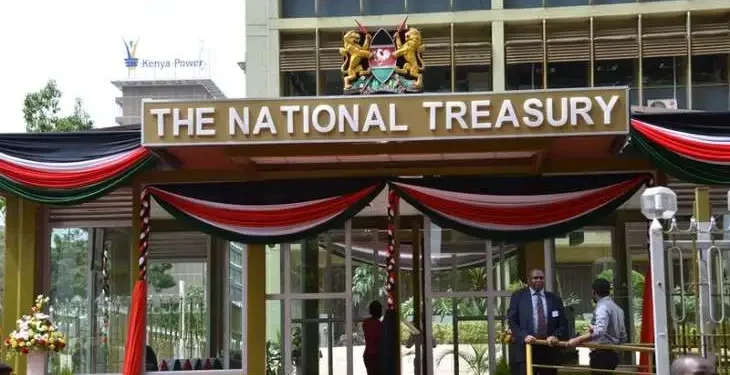Kenya is standing at a critical economic crossroads as the government unveils a fresh series of tax reforms and policy measures to ease economic pressures, boost growth, and restore public trust.
The Ministry of Finance’s recent announcement on the Tax Laws Amendment Bill 2024 signals a shift in strategy, setting the stage for what could be a fiscal overhaul. The Treasury’s approach is notably different this time.
With proposed tax adjustments designed to ease pressures on workers’ incomes, stimulate trade, and encourage investment, the bill paints a more cohesive and optimistic picture. This is in contrast with the last two finance bills which looked disjointed and aimless. Alongside the tax law adjustments, amendments to business law and public finance regulations are expected to compliment the tax measures.
In 2024, Kenya’s economy slowed across major sectors, with tight monetary policy weighing down growth prospects. Public dissatisfaction, driven by stagnant wages, rising costs, and heightened taxes, led to country-wide protests, eventually compelling the government to withdraw its previous Finance Bill. Read More.
Now, the Treasury is rethinking its approach with a bill that focuses on increasing disposable incomes, encouraging investment, closing tax loopholes, and improving tax compliance.
In this article
Easing Pressure on Households
In a bid to ease the financial strain on workers, the Treasury’s new proposals include several measures to improve disposable incomes. For example, Permitting deductions for contributions to the Social Health Insurance Fund, Affordable Housing, and post-retirement medical funds will provide some payslip relief for many.
The non-taxable limit for employment benefits, meal benefits, interest for housing loans and pension contributions have been proposed to increase. These amendments are expected to offer some relief, giving workers more breathing room amid the high cost of living. The Treasury has proposed a total of six amendments geared towards payslip and pension reliefs.
While the amounts may not seem significant for an individual, when aggregated at a macro level, it represents a serious cash injection into the economy, a move we last saw in 2020 during Covid.
Targeting Loopholes and Broadening the Tax Base
Another focal point of the tax amendment bill 2024 is a clampdown on tax expenditure loopholes. Tax expenditures—such as exemptions and zero-rated items—constitute a significant loss for the government’s revenue, estimated at 2.94% of GDP in 2022.
The Treasury now plans to streamline these concessions by reclassifying goods and services from exempt to taxable status, particularly in areas like aircraft appliances, tourist vehicles, and pest control products. This step, officials argue, is necessary to close revenue drains and prevent abuse of the tax system.
Additionally, the government seeks to broaden the tax base by reaching into emerging sectors such as digital services, e-commerce, and the gig economy.
Under the proposed amendments, a new significant economic presence tax will replace the digital services tax, requiring a 6% revenue contribution from foreign tech platforms operating in Kenya. By targeting these sectors, the Treasury hopes to capture more revenue from an evolving economy, furthering fiscal sustainability.
A New Strategy for Compliance: The Carrot and Stick
The 2024 Tax Amendment Bill introduces measures aimed at promoting compliance through both incentives and penalties.
For instance, taxpayers who clear their outstanding tax dues by June 2025 will enjoy a penalty and interest waiver. The bill also proposes to allow taxpayers with tax debts to offset the liability in case they had previously overpaid. People in cross border logistics will know this provision is a gift. Conversely, the bill also introduces stricter penalties for withholding agents who fail to remit taxes promptly & EPZs that don’t file returns.
Previous treasury regimes were fixated on penalties & fines without offering positive incentives. Through this balance of rewards and punishments, the Treasury is more likely to see increased compliance rates while fostering a culture of responsibility among taxpayers.
Coupled with efforts to digitize the tax filing process and minimize human interaction, these measures could lead to an overall improvement in tax revenue without placing undue stress on compliant taxpayers.
IMF Softens Stance, but Urges Continued Tight Policy
The International Monetary Fund (IMF), a key stakeholder in Kenya’s fiscal journey, has recently softened its push for aggressive revenue targets in the face of public resistance. The IMF’s latest review reflects a new stance: while maintaining its call for fiscal discipline, it now sees spending rationalization, rather than new taxes, as the primary means of balancing Kenya’s budget in the near term.
This shift in approach acknowledges Kenya’s unique political challenges and the risk of undermining public trust through excessive taxation.However, the IMF has held firm on its call for tight monetary policy. Although the Central Bank of Kenya has begun easing rates to support growth, the IMF advises caution, urging the bank to remain vigilant against inflationary pressures.
The outcome of this balancing act will be pivotal as the government seeks to stimulate recovery while managing public debt.
A Potential Turning Point
As Kenya grapples with these fiscal and political dynamics, the road ahead remains challenging. Yet, there is room for optimism.
With the Central Bank signaling potential easing in its policy stance and a projected rebound in economic growth in early 2025, the Treasury’s fiscal reforms could mark the beginning of a revitalized era for the economy.
The key to success will be effective implementation of the new measures and building public trust, a challenge John Mbadi, the new Cabinet Secretary for The National Treasury and Economic Planning seems poised to tackle with his proactive approach to public finance reforms.
In the coming months, Kenya’s economic story will continue to unfold. Will these measures provide much-needed relief to workers, encourage investment, and restore confidence among taxpayers?
The stakes are high, and the outcome of these fiscal reforms may well define Kenya’s path toward economic resilience and growth in the coming years.
Ruriga Kimani is a seasoned Business Analyst and Consultant specializing in economics and finance which expertise in financial analysis, strategic planning, and effective risk assessment. He can be reached at dominicruriga[at]gmail.com.




